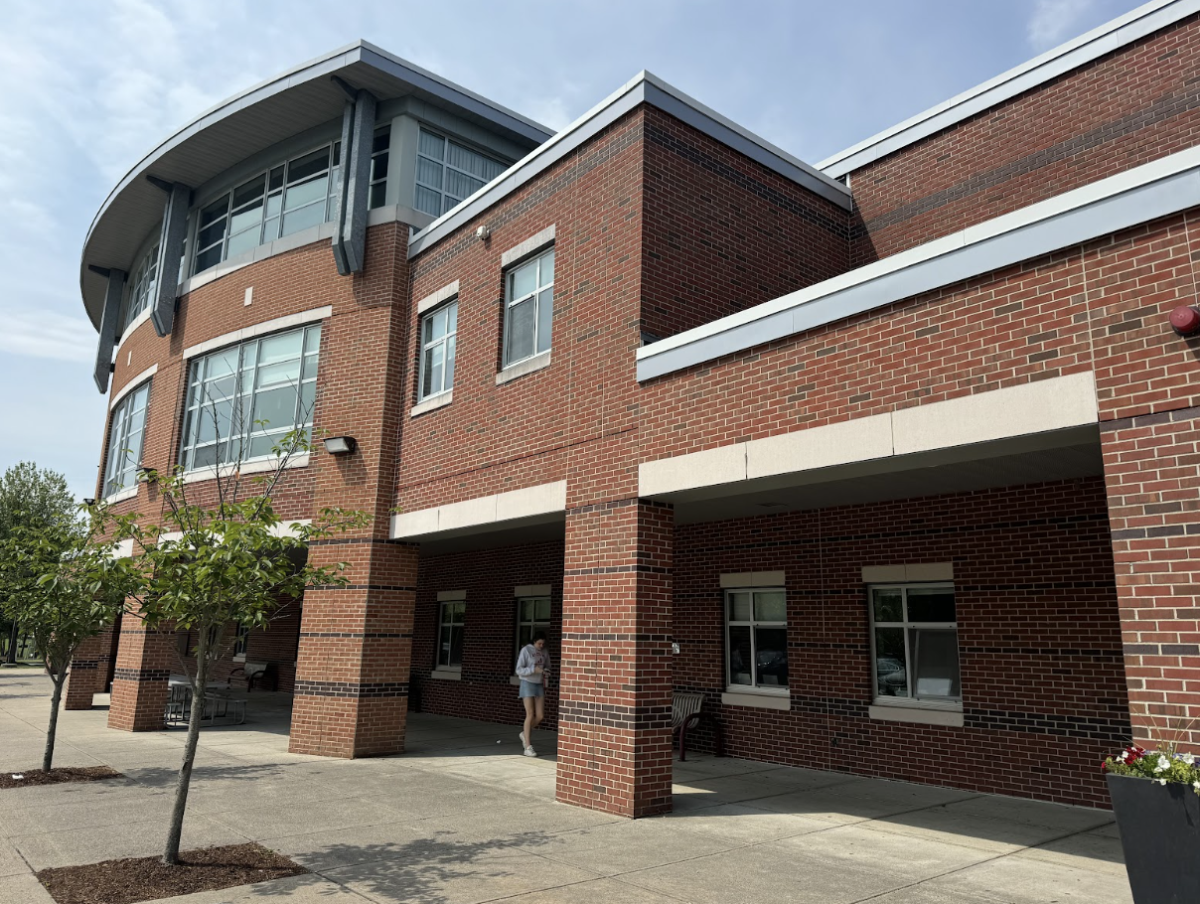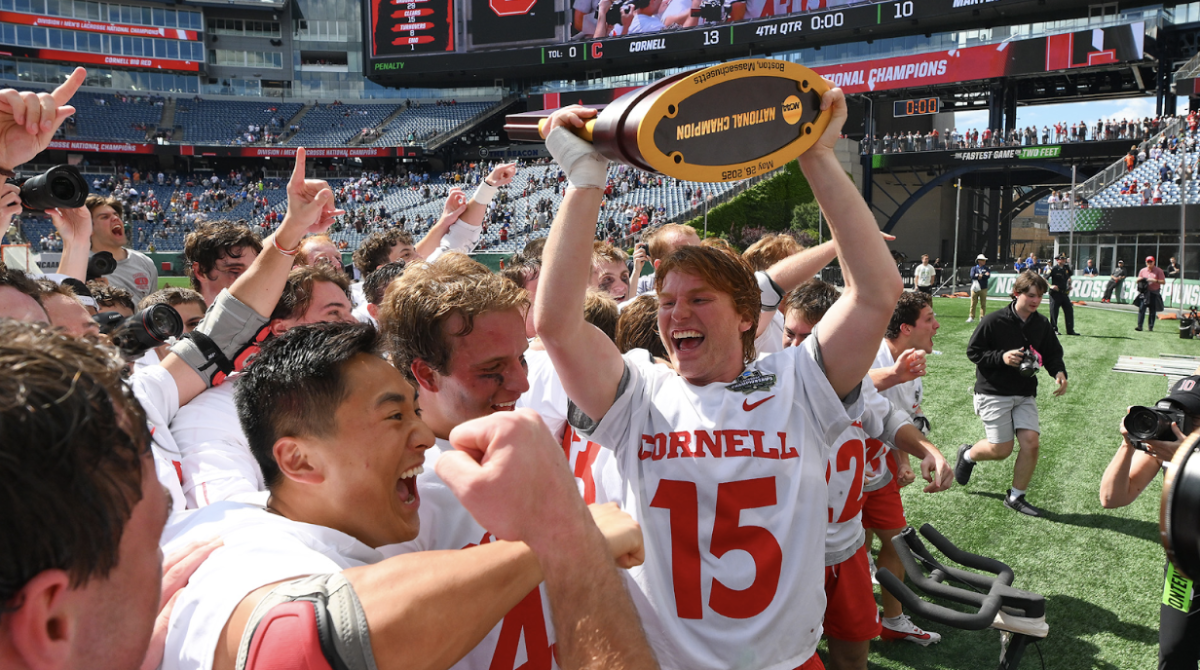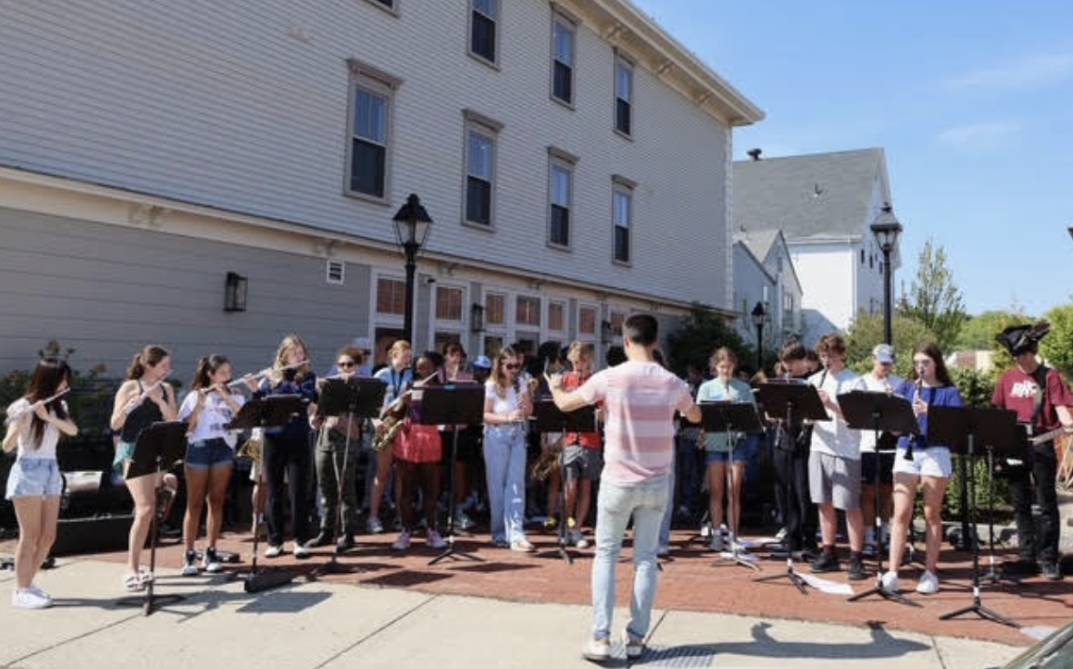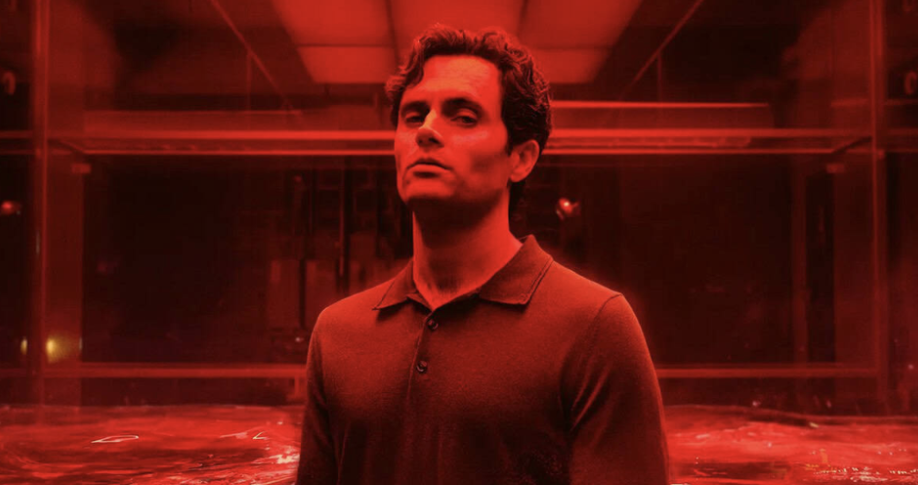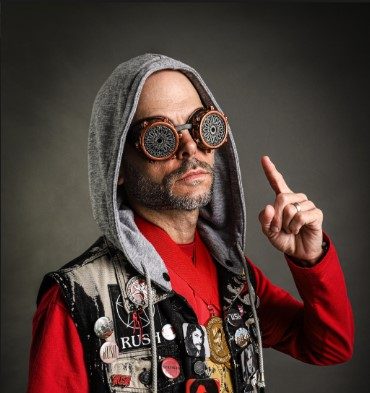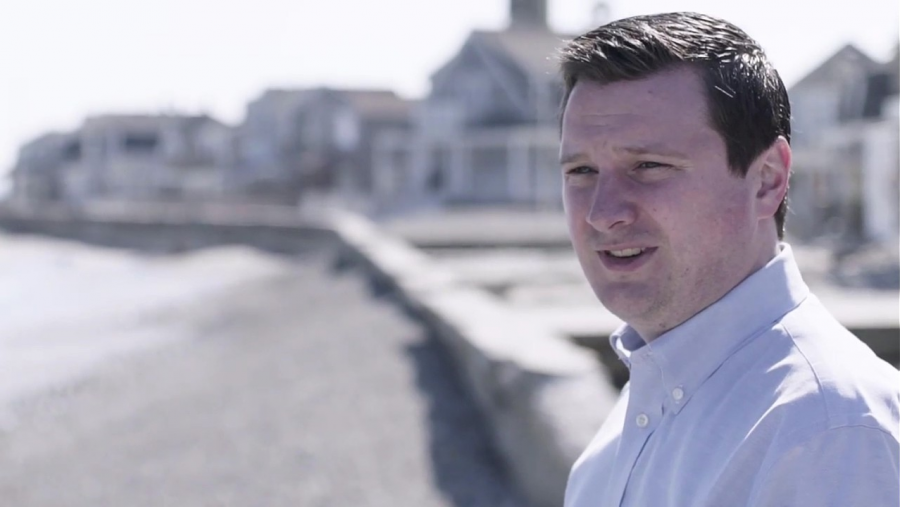2018 Midterms: Interview with Incumbent State Senator Patrick O’Connor (R)
September 30, 2018
At 34, Patrick O’Connor may seem young to be Minority Whip in the MA State Senate, but he has served as a public servant since he was 21. This year, he faces Democrat Katie McBrine, M.D. and independent Stephen Gill. McBrine is his most prominent challenger.
I met Sen. O’Connor at Panera Bread in the Shipyard, where he was enjoying a soup in between campaign obligations. We sat down to discuss his policies and reelection campaign.
Sutton: Why did you originally run for state senate?
O’Connor: Sure. So I got into politics, basically, at a younger age. My grandmother worked for Tip O’Neill when he was a member of the Massachusetts House of Representatives in Cambridge, so politics was always kind of in the background in my family. And in Weymouth in 1999, we changed forms of government from a board of selectmen and everyone ran for, you know, the DPW board and water board– similar to how it is in Hingham– to a city council and mayor form of government. And everyone ran, so it was chaos throughout the entire town. So I was, at that point in time, in ‘99, a freshman going into my sophomore year of High School and so [politics] really piqued my interest. I then ran for class officer, became vice president of my class. [I] went to school over in London, England, and every time I came back home, I kept on seeing some things that I wanted to change in my hometown, and when I came back at 21, I decided to run for local office for three main reasons.
One was the opioid epidemic, I was seeing too many people who I went to school with who were starting down the road of prescription medication, abusing prescription medication. The second was Union Point development. Ten years, and it was still just a vast 1500-acre parcel of land. And the third was Legion Field, where we played our sports, where we had our track and we did lacrosse and soccer, was used as basically a dumping ground for the Greenbush station. They dumped all the dirt there, and I thought that was a mistake on behalf of government.
So that’s what sparked my interest about getting involved in politics, and then throughout that journey I spent 12 years on the council in Weymouth, and in that period of time I did eight years working for then-Senator Hedlund, now Mayor Hedlund. I got to crisscross this district, meet all these amazing people that make up the South Shore, and I think it was one of those things that once that seat became available, I wanted to put my name in the ring, and get out there all the things that I believe are good about the South Shore, are good about the state, and what we can improve on.
Sutton: What would be your priorities this term?
O’Connor: As far as what I’m trying to do up there and what we’ve been able to accomplish, in my opinion, over the past two years, is advance our shared priorities. I think there’s a lot of chaos going on right now in national politics, and Massachusetts has to be the standard bearer. We have to be the state that people can look at and say, ‘That’s how you get stuff done. That’s how Democrats and Republicans work together.’ And that’s the reason why we have the sixth-best education system, if we were a standalone country we’d have the sixth-best education system in the world. That’s why we have the best healthcare, why you read stories day in and from other states and from other countries coming to Massachusetts to get better because we have the best hospitals. We’re the envy of the world for our higher education, we treat our veterans with respect, we give the most services to our seniors, we help the intellectually and developmentally disabled. So a lot of what I’m trying to do is continue advance our shared priorities, by voting on budgets that make sense, that hold the line on taxes while continuing to make investments in these crucial services.
And as far as the South Shore comes, you see construction that’s going on all across the South Shore, there’s infrastructure projects that we’ve been able to secure, whether they be the bridges over Route 3, whether it be completion of the Fore River Bridge, whether it be some of the stuff that’s going on at Union Point, whether it be some of the development that’s going on here in Hingham– all of that is trying to tie what’s great about the South Shore to the state, and influence the state with a lot of the stuff that we have going on here. So the major reason why I’m running is to continue the work that we’ve done over the past 2 and a half years, providing this district with the representation it deserves on Beacon Hill.
Sutton: You mentioned the healthcare in Massachusetts. Your opponent has campaigned for a universal healthcare system in Massachusetts. Where do you stand on healthcare currently? Do you think we need any kind of reform and, if so, what kind?
O’Connor: Yeah, we definitely need reform. I was on the special Senate Committee on healthcare cost containment, so I was able to go out to Minnesota and see a new model in which– that they’re implementing in Minnesota, which is basically a triage system. And you can kind of see that this is where the future of medicine is going, with South Shore Hospital recently taking over ambulance service in the town of Weymouth. So they can do this, because it’s a hospital-run ambulance service now.
So basically the structure that they use, and they’ve saved an incredible amount of money with this, is that the fire-based ambulance service of a certain community would go to your house and say ‘Alright Will, you have a sprained ankle. We’ll do a follow-up with you, but you don’t have to go to the hospital, you know, we’re going to prevent you from going to the ER that way.’ The second thing is, ‘Yeah, it’s a sprain but you could have a tear, so let’s go and get you some imaging done at an urgent care rather than going to the ER.’ And the third is, ‘Oh no, looks like you broke your leg there, let’s go to the ER.’
So because of that triaging system we will save money. I believe in telemedicine, I think we need to continue the advancements of telemedicine, where some people are actually sitting a room without a doctor there, and a nurse is being instructed on what to do, what to look for. [The doctors] are getting the imaging, they’re getting all the results, they’re getting his charts, and they may not even be in the same state. So there’s a lot of ways we can save it.
I also went to Vermont during my time with this commission and we studied the universal system that they tried to do under Governor Shumlin. And he was a leader, he ran on single-payer healthcare, Vermont is, in my opinion, one of the more progressive, dark-blue states that we have. And when they tried to do it, their legislature and their governor basically said it was going to be too expensive. And it wasn’t even an all-in effort. There were some people that were excluded, there were some carve outs. But it was basically a nine and a half percent income tax increase, and an eleven and a half percent payroll tax. So that’s a significant amount of money. And that all in, all at once, is going to, in my opinion, potentially hinder economic growth and prosperity. It’s a lot of money, so that’s the only thing.
But I think healthcare is a mess, and I think every option should be on the table, and that’s why I voted in favor of a study on single-payer healthcare, which was passed in last year’s healthcare bill. But that’s what we should do, is take a look at this, but from all accounts that I’ve looked at it’s a very costly endeavor to do this. And I think that there are other cost containment solutions out there that we haven’t tried yet, so I’d like to try them.
Sutton: Pivoting to more local– but still healthcare– news, the FDA two weeks ago now declared teen vaping an epidemic. How would you help curtail vaping among teens in our district? Do you have any initiatives in mind?
O’Connor: Well we recently just upped the smoking age to 21, which I think is going to pay huge dividends. Vaping- there’s a sign when you leave that we’ve actually sponsored through the state, and it’s, ‘This is the new face of nicotine addiction’ and it’s a bunch of cleverly designed vape pens. And it’s definitely an epidemic, you see it all over the place.
[…] It looks like it’s something that’s not harmful, because they’ve designed it that way, but seriously it’s just a transition from Big Tobacco to get young kids. And once they, you know, stop vaping they’ll transition to cigarettes.
It’s an absolute disgrace what’s going on in that realm, and I’m glad the FDA has addressed this. And in Massachusetts, it’s raising awareness on making sure that kids know this; raising the age in which people can legally purchase tobacco; and the third component’s going to be making sure we continue to increase the curriculum with, like D.A.R.E. and Officer Ramsey, and make sure that he identifies this too.
But it’s really a– it’s coming from everywhere. When we have the opioid epidemic, we have a vaping epidemic, we have all these things, all at once, that- there’s a lot that your generation and the generation younger than you are going to have to deal with, as far as corporate, in my opinion, manipulation. Trying to get people to do things, whether they be the overabundance and overprescription of Oxycontin and Percocet, or whether it’s, you know, making vape pens look cool. It’s really challenging.
Sutton: Sticking with local issues, Hingham High School was one of several schools to host a walkout in March to protest gun violence and advocate for common-sense gun control. What is your stance on our state gun laws? How would you make yourself available to students’ concerns?
O’Connor: Sure, well, obviously I made myself available to [students] with Representative Meschino. My stance on the Massachusetts gun laws– we’ve been able to do two things, since I’ve been in office, to strengthen them. One was the banning of bump stocks, and the second was the Extreme Risk Protection Order, both of which I voted in favor of. I think that Massachusetts has the best gun laws in the nation. We’re always either 1 or 2 with California, depending on what the certain metric is that people are judging who has the best gun laws by. And there’s always going to be things, innovative ways to increase the level of safety and protection that needs to go in to gun ownership in Massachusetts. But I think we do a really good job.
I think one of the core components of this is making sure we get illegal guns off the streets. I mean, we see it far too often that people are using illegal guns to commit crimes on an almost daily basis in this state, and we need to curtail that by doing as much as we possibly can by giving our law enforcement as many tools as we possibly can to really get into that and stop illegal gun ownership.
But as far as legal gun ownership goes and as far as Massachusetts laws, we’re really strict. We’re the only state in the entire nation that the licensing officer is the police chief. So, something that happened in Parkland, you’d like to think, wouldn’t happen in Massachusetts because an individual would have been stopped prior to the potential of them going through the purchase of a weapon.
Sutton: There are a few candidates this year– including the challenger for Plymouth County District Attorney, John Bradley– who are running on a platform that includes some criminal justice reform. Do you think we need to take a look at Massachusetts’ justice system to ensure equality in our state?
O’Connor: Well, we did last year– there was a big criminal justice reform overhaul last year in the state legislature. I thought that some of it was good, but a lot of it was bad. For example, one of the– the decriminalization of about 14 or 16 different crimes for minors, and not being able to track them is a challenging thing. And the other thing is that we decriminalized everything for people under the age of 12, and that is actually– we’ve already seen the bad side effect of that in Lynn. We had a bunch of eleven year olds go and vandalize a school, and so there was literally no recourse that we could do.
So yeah, to answer the question, yes, I believe the Massachusetts criminal justice system has to be looked at, but I think it has to be looked at both ways. I believe that Massachusetts has a tendency, too often, to let people off on pretrial probation. We’ve seen how– in just the major news stories– how that has been not something that’s been beneficial to the individual, but actually bad for society, and I think we need to do a much better job at sort of going through the entire system and figuring out who’s who, who’s a danger to society, who should be locked up, who needs mental health assistance, who needs addiction recovery assistance- all these things go into, sort of, the pot that is criminal justice. And I think that we need to look at it very often and regularly in order to make sure that we got it right because criminal justice is one of those things that, we need to make sure it works on both ends. That those that need help are getting out, and those who need to be locked away from society are.
Sutton: Many voters from your district are concerned about the proposed Weymouth Compressor Station, especially after the Merrimack Valley explosions. Both you and your opponent are against the compressor station. What steps have you taken already, and what steps would you take, in order to block the plan?
O’Connor: In 2015, it was the first time that I was able to take a vote on this, I voted on a resolution when I was president of the council in Weymouth to oppose the compressor station. From there, it has been an all-out, just, push. I was able to sit down with the mayor, and convince him, and convince others, to reject the 47-million-dollar, blood-money payout, basically, that the energy company– then Spectra, now it’s Enbridge, it used to be in Houston, now it’s up in Canada– that they wanted to basically give to the town of Weymouth. And I said that there is absolutely no price tag that you can put on quality of life, quality of air, making sure that we don’t have one of these things- in my opinion, one of the worst possible sites that you can put something like this.
So after the rejection of the money, we then filed the legislation. It’s a two-pronged approach. One is to make sure we have air quality monitoring […] a lot of this doesn’t make sense. There should be, at least within a half mile of something as highly industrial as that, especially in– using natural gas, there should be air monitoring going on constantly to make sure the air we breathe is not polluted with the methane and other chemicals that are coming out of this plant during these blowdowns. So that’s one of the approaches we’ve taken, and the second approach was… to make sure that when natural gas companies do put compressor stations in place, that they put them in place in areas that are very rural. Not areas that are right next to a $244 million bridge, not next to thousands of children, not next to a daycare centers, not next to a school where elementary kids go. That they’re not in an area where people congregate in any way.
There’s been explosions of these in West Virginia, there’s been explosions in Pennsylvania and Texas. And you look at these explosions and– this isn’t a metering station, this is just a thing that, every 70 to 100 miles we need these compressor stations to basically speed up and clean the gas. And these are types of industrial material that needs to be highly regulated that needs to be highly regulated.
And in my opinion, I honestly think this is a fight for our community, too. This is us– Hingham and Weymouth, coming together, and the South Shore, really, coming together– Quincy, Braintree, everyone coming together– and basically saying, ‘If we’re going to allow this to happen, it’s going to happen everywhere. If we’re going to allow them to put this on such a densely populated area, a dense parcel of land right next to a bridge, right next to a waterway, right in the middle of a community– on the gateway to our community, the gateway to the South Shore– then, if we’re going to allow that to happen, it’s going to happen everywhere else. So we’re fighting not only for our community, and to stop that compressor station, but to stop this practice from happening. The federal energy regulatory commission think they can just breathe down our next and say, ‘No, it’s going there, because federal government supersedes you.’ I question federal preemption on this, I think the state can get involved, go head-to-head with the federal government, push back, and beat, and win, and stop this thing.
Sutton: Finally, why do you believe voters should choose you in November?
O’Connor: Well, I have a track record. I have two and a half years experience being the state senator for the South Shore, I’ve enjoyed every minute of it, and it believe that it’s one of those– this is a good time for Massachusetts. We’ve turned a $800 million deficit into a billion-dollar surplus, we’ve created 110,000 jobs, we’re fighting back on the opioid epidemic. We’re seeing progress and momentum all throughout the South Shore, whether it be in infrastructure, whether it be in schools, which have record-level funding, whether it be in public safety, which has record-level funding, or whether it be in Chapter 90 money and getting money for our roads, for our sidewalks, and for our bridges, which we’re continuing to live around. I want to continue to represent the South Shore because going up on Beacon Hill and working in a bipartisan fashion is something that I’ve been doing for two and a half years, and I want to continue to do it.
This interview has been edited for clarity, coherency, and length. The views presented have not been altered in any way.






